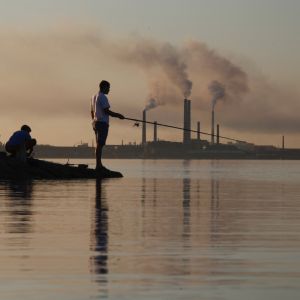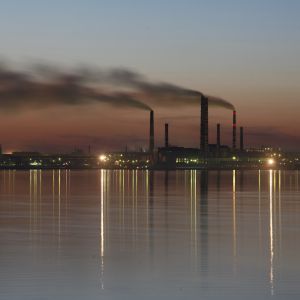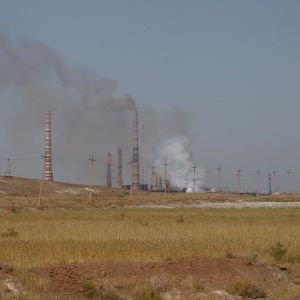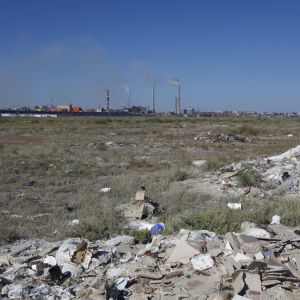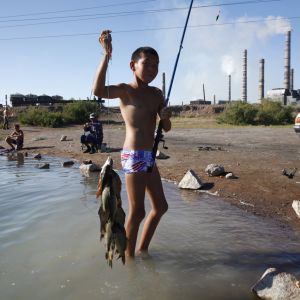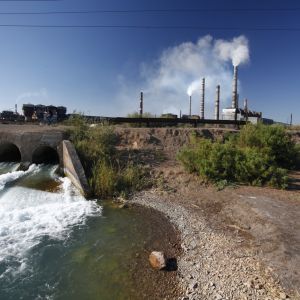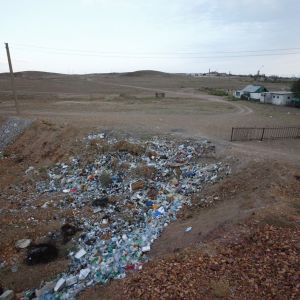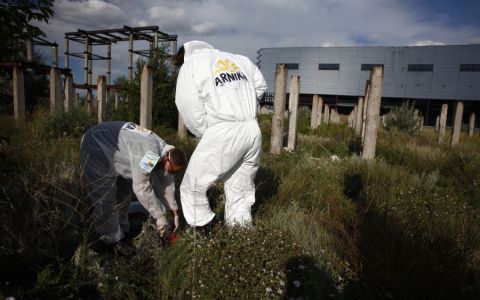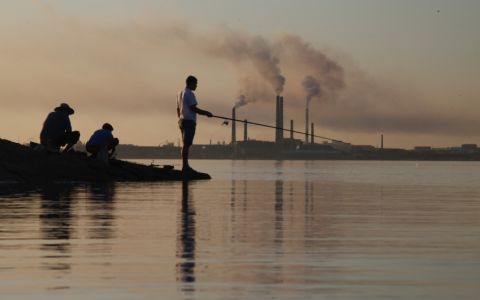The city of Balkhash started to emerge in 1928 after copper site was discovered at the northern edge of the lake of the same name. In 1937, it was official found at the Bay Bertys, related to the construction of nonferrous metallurgical plant "Balkhashtsvetmet" (the earlier Balkhash Gorno-Metallurgical Combinat, BGMK – Balkhash Mining and Metallurgical Combine). In following years, city developed and till now reached 76 thousand inhabitants.
Kazakhmys plant is the main industrial source of pollution of both Balkhash lake and the city. Other mining and non-ferrous metallurgical enterprises also contribute. The environmnet is polluted mainly by heavy metals related to ores smelting and metallurgy (copper, lead, zinc, cadmium, arsenic). New facility to catch sulphur dioxide and produce sulphuric acid was put into operation recently that considerably decreased the emissions: from 592.08 thousand tons in 2007 to 73.18 thousand tons in 2012.
It is not a secret that a significant part of the emissions is released because of using of non-effective facilities to clean-up release gases. Increasing air pollution is observed in the warm period of the year when south-west winds blow from the factory. The wind spreads the emissions from the chimneys and also swirls contaminated dust from large tailing ponds that occupy the territory of 25 sq. km – the area twice larger then Balkhash city itself.
According to experts, if the winds blowing north-east direction will not prevail and carry the major part of the pollution away from the city, the concentration of pollutants would simply make the air in Balkhash unbreathable.
Health consequences
Medical research shows disturbing level of health problems of the population. The birth of the children with congenital developmental anomalies is 2.7 times higher than Kazakhstani average. Level of hormone-dependent congenital developmental anomalies (14.4 %) – exceed more than twice the republican level. There is a high cancer rate – morbidity related to the hormone-dependent cancers exceeds the Kazakhstani average 1.5 – 2 times.
Some of discovered health problems cannot be caused only by the heavy metals. Thus, it is estimated that industry releases unintentionally some of persistent organic pollutants (POPs).




